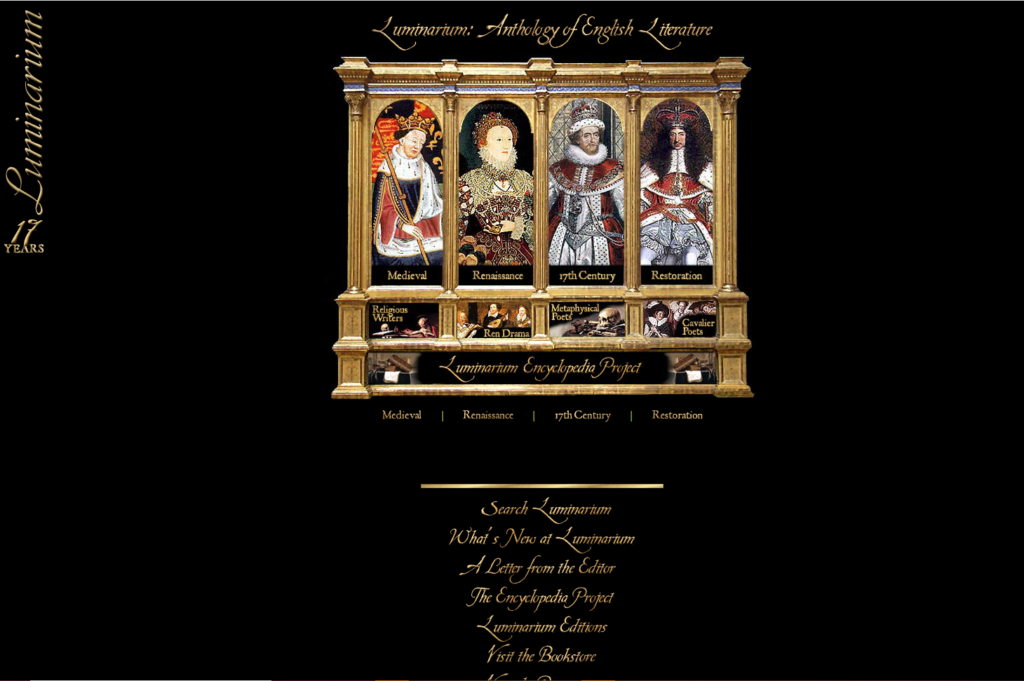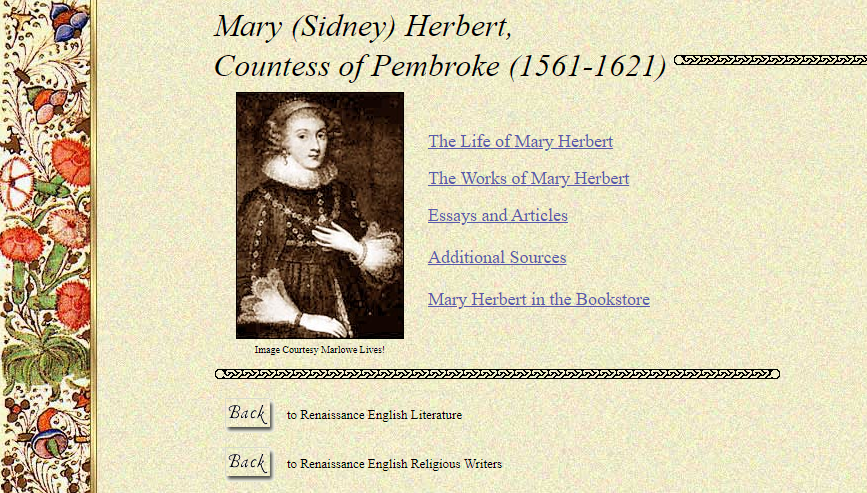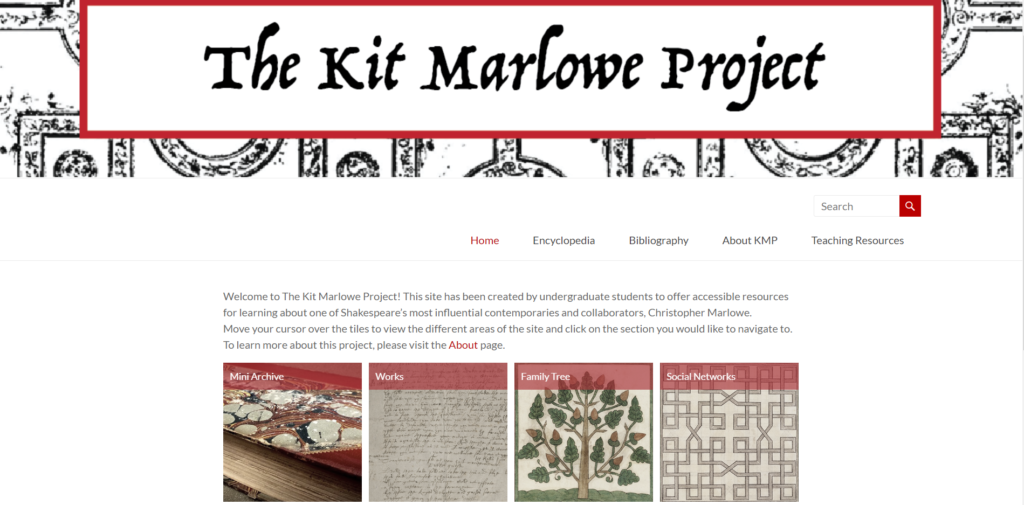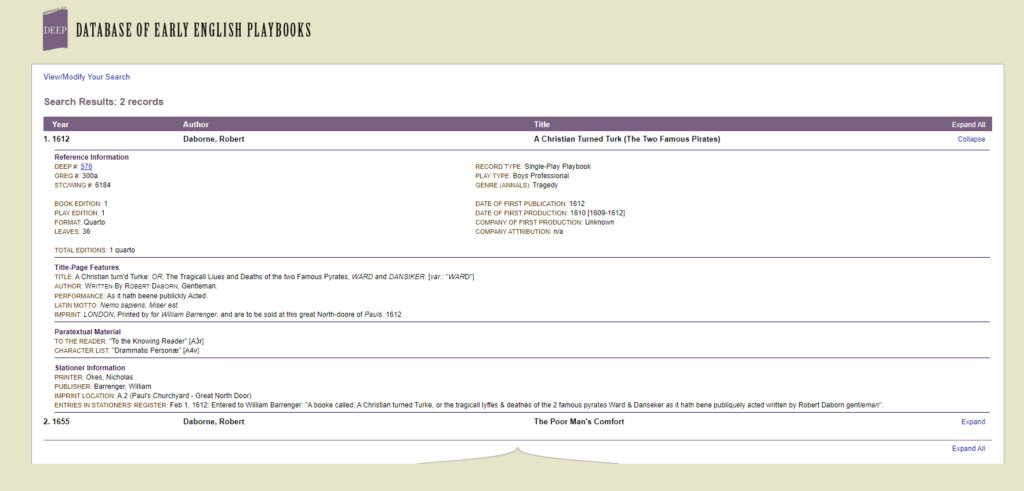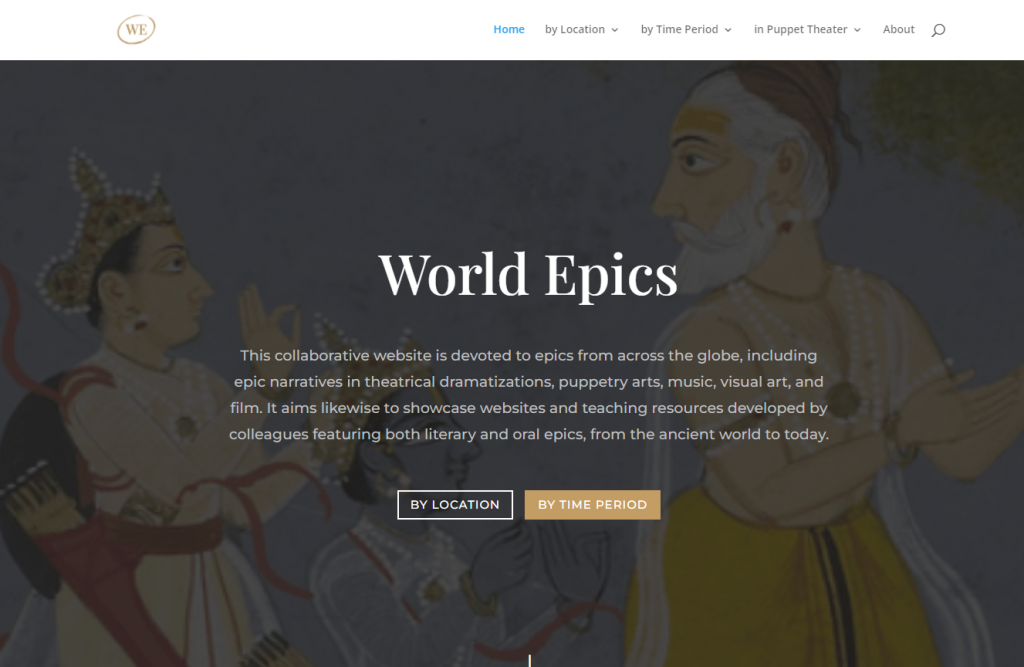
https://edblogs.columbia.edu/worldepics/
This collaborative website is devoted to epics from across the globe, including epic narratives in theatrical dramatizations, puppetry arts, music, visual art, and film. It aims likewise to showcase websites and teaching resources developed by colleagues featuring both literary and oral epics, from the ancient world to today. Several Renaissance epics are included. Inquiries and submissions welcome.


